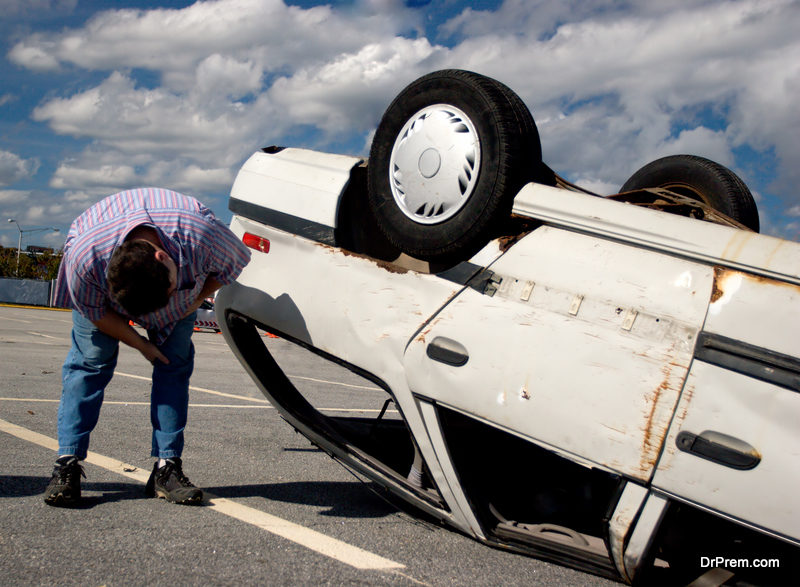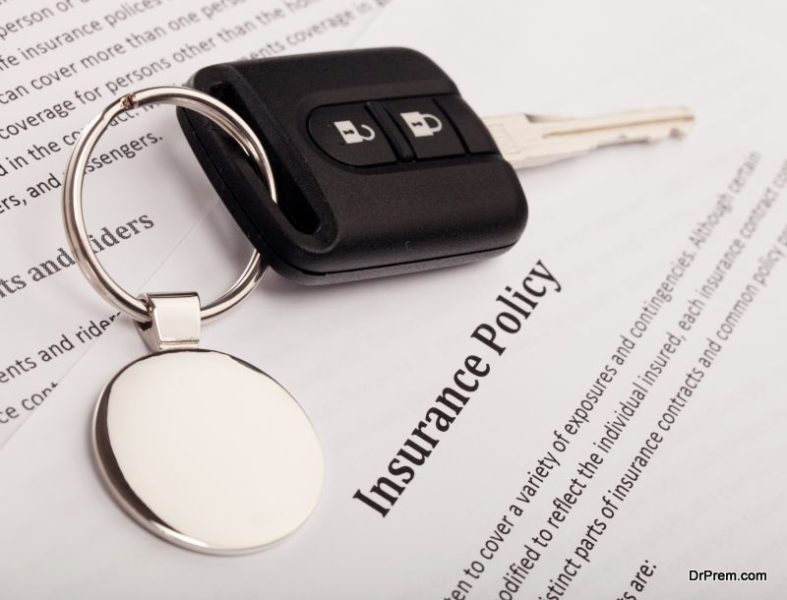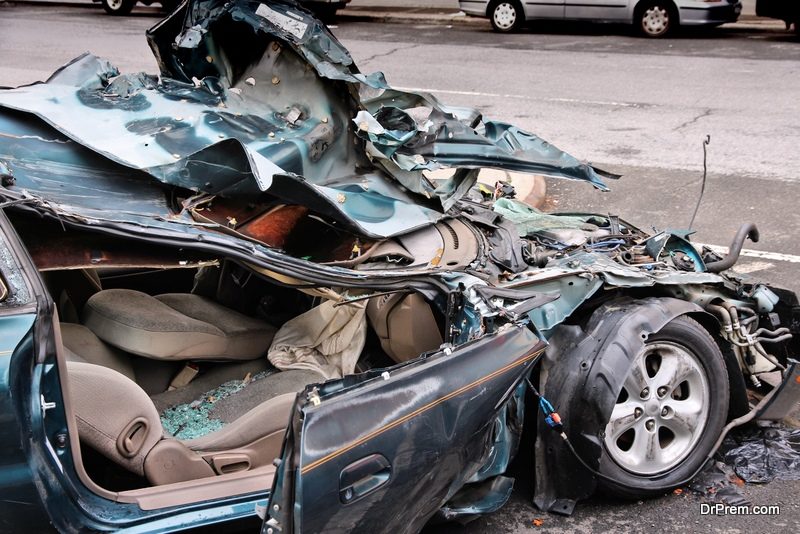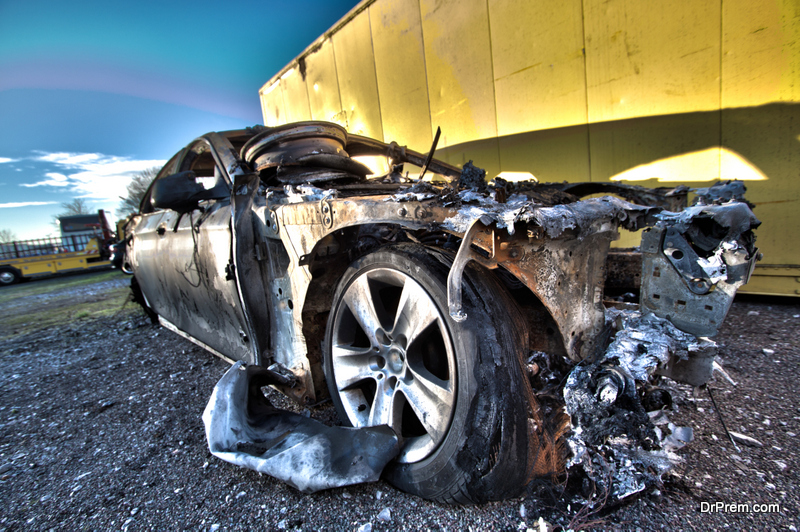There’s a reason we call car crashes “accidents”: Nobody ever plans to get into one. But unless you have a plan for what’s next, the consequences of a car accident can also wreck your finances.
Before assessing financial damage, your first priority after an accident should be safety: Are you, the other driver, or any passengers injured? If so, get help immediately: Cars can be replaced; people can’t.
Once it’s time to face the music, get out your insurance card. Not only will the police officer who arrives want to see it, but you’ll need it to figure out the accident’s financial impacts.
How to handle a totaled car
If you get in more than a minor fender bender, you (and the other driver) will need to inform low law enforcement and your respective insurance companies. To make the most of a bad situation:
1. Don’t admit fault
 After an accident, it’s tempting to jump out and start apologizing. But at least as far as the legal system is concerned, apologizing to the other driver, the police, or an insurance company representative can amount to admitting fault at the scene.
After an accident, it’s tempting to jump out and start apologizing. But at least as far as the legal system is concerned, apologizing to the other driver, the police, or an insurance company representative can amount to admitting fault at the scene.
Even if you think you’re at-fault, let the two insurance companies and authorities make that determine separately. The real reason for the accident could be something you’re unaware of, such as another driver who wasn’t paying attention. Saying you’re sorry significantly raises the chances you’ll be wrongly found at-fault.
2. Check driver names against policy details
A car accident is stressful enough when the drivers are also the owners. If someone else is driving your car — or if the other driver doesn’t own the vehicle they crashed — things get even more complicated.
In an at-fault accident, the policy of the vehicle’s owner should pick up the tab. If the other driver doesn’t own her car, be sure she shares with you the driver’s license number and contact details of the person who does. If a friend or family member crashed your car, your collision coverage should take care of you.
What if you don’t have collision coverage? Check your deductible, and ask your at-fault friend or family member to pay it. If they won’t do so, don’t loan them your car again: Legally speaking, you’re responsible for the full amount.
3. Promptly file any paperwork required by your insurance company
 As tempting as it might be to ignore the damage to your vehicle, don’t. The longer you wait to file with your insurance company, the worse the claims process will be.
As tempting as it might be to ignore the damage to your vehicle, don’t. The longer you wait to file with your insurance company, the worse the claims process will be.
Realize that resolving an auto insurance claim can take weeks. Not only does waiting prolong a bad situation, but it makes it more difficult for your insurance company to collect evidence and interview participants. If your inactivity is the reason that a claim can’t be processed, you may be penalized — even if you weren’t at-fault for the accident itself.
For a faster resolution, take your insurance company’s recommendations and deadlines seriously. Even if you have a preferred body shop, for instance, you’re likely to get your car back sooner (and in better shape) if you go with the one your insurer may have suggested. Your insurer already has open lines of communication with that mechanic, which minimizes miscommunications and incentivizes the body shop to do a good job.
4. Find out how much money you still owe on your car loan
Unsurprisingly, totalling your car can be extra stressful if you just bought it. You’re probably still paying off the bulk of your loan, and your car will have decreased in value since you drove it off the lot.
Even if your car is deemed a total loss by your insurer, an accident doesn’t change the terms of your underwater loan. That’s why it’s particularly important to have collision coverage, which pays regardless of who’s at-fault, if you’re driving a new vehicle.
If you’re worried about any collision payout being less than the value of your loan, get gap insurance. For about $20 more per year than you already pay for comprehensive and collision insurance, gap insurance covers the difference between what the car is currently worth and what you owe.
5. Keep tabs on your insurance rate.
 After you’ve gotten back on the road and sifted through the entire claims process, step back and think about what the accident means for your long-term insurance costs. If you weren’t at-fault, you may not see any increase. If you were responsible, you can expect to pay an elevated rate for three to five years. In the meantime, staying on top of your finances can help keep your auto insurance score on the right track.
After you’ve gotten back on the road and sifted through the entire claims process, step back and think about what the accident means for your long-term insurance costs. If you weren’t at-fault, you may not see any increase. If you were responsible, you can expect to pay an elevated rate for three to five years. In the meantime, staying on top of your finances can help keep your auto insurance score on the right track.
Just how much might your rate increase? Although it varies by state and type of accident, plan to pay about a third more. In Minnesota, the average increase is 87 percent; in New York, it’s 12 percent.
Car accidents aren’t fun, but aren’t a reason to panic, either. Stay calm, check that everyone is OK, and share your insurance information. Even an at-fault accident won’t stay with you forever, and insurance companies will work with you to cover costs. And if they don’t? Shop around: It’s a good idea to compare policies when you’re buying a new car anyway.
Article Submitted By Community Writer




